
In a world where health and convenience often intersect, the question arises: Are manual juicers good for your daily juicing needs? With the rising popularity of fresh juices, manual juicers have become a staple in many kitchens. These devices offer a simple, efficient, and cost-effective way to extract juice from a variety of fruits and vegetables. In this comprehensive guide, we will delve into the advantages of manual juicers, compare them with their electric counterparts, and help you determine if a manual juicer is the right choice for your lifestyle.
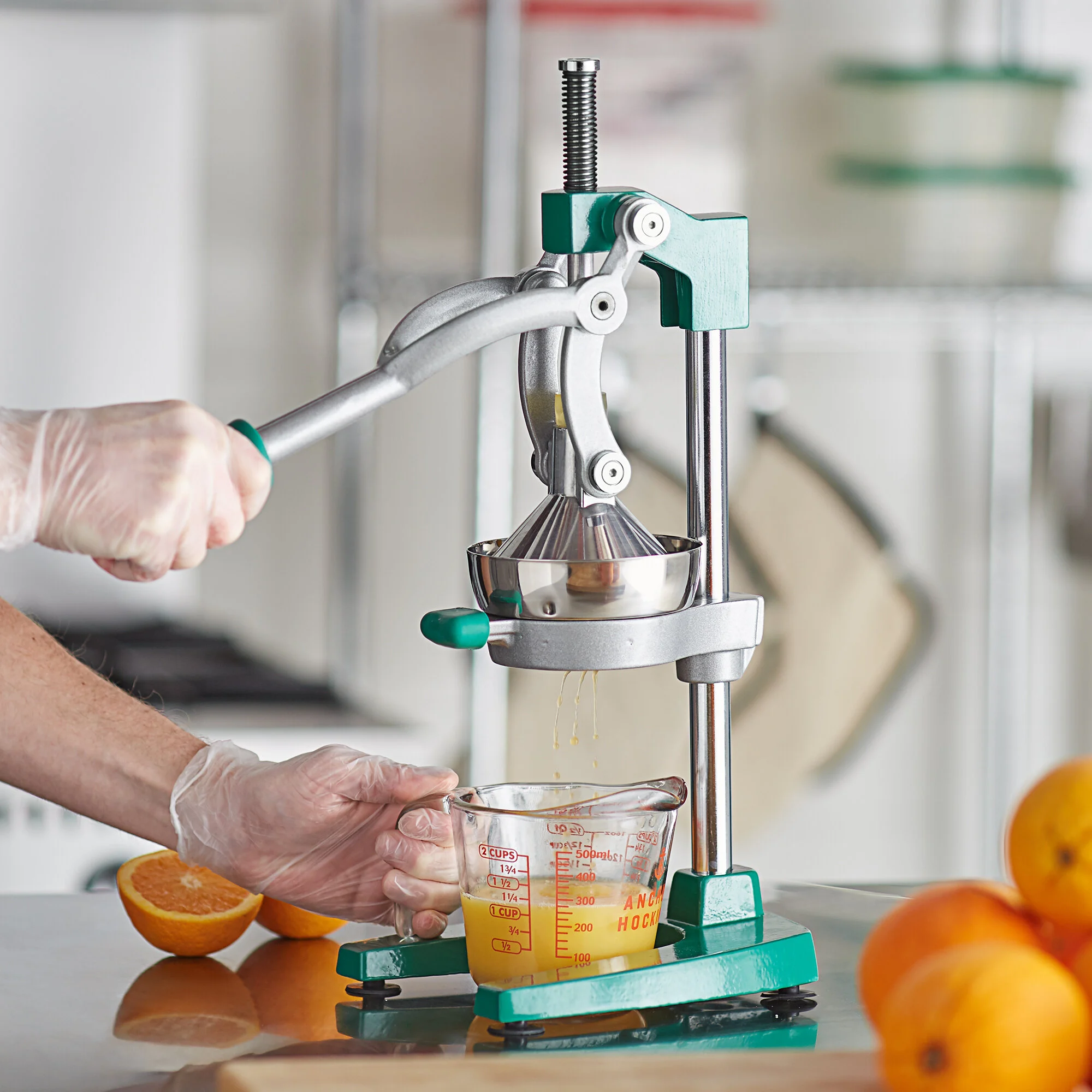 Understanding Manual Hand Juicers
Understanding Manual Hand Juicers
Before we assess whether manual juicers are good, it’s essential to understand what they are and how they work. A manual juicer operates without electricity, relying instead on human effort to extract juice. Typically composed of a reamer or a press mechanism, manual juicers require you to press or twist the fruit to release its juice.
Types of Manual Juicers
Manual juicers come in various forms, each designed to suit different types of produce and juicing needs. The most common types include:
Reamer Juicers
Reamer juicers are straightforward devices consisting of a cone-shaped reamer and a bowl to collect the juice. They work best with soft fruits like oranges, lemons, and apples. To use a reamer juicer, you simply press and twist the fruit against the reamer to extract the juice.
Masticating Juicers
Masticating juicers use a slow, grinding motion to press the juice out of the produce. This type is more versatile, handling both hard and soft fruits, as well as leafy greens. Masticating juicers are known for preserving more nutrients due to their low-speed operation.
Press Juicers
Press juicers, also known as citrus juicers, are specifically designed for extracting juice from citrus fruits. They often feature a lever that you press down firmly to extract maximum juice from oranges, grapefruits, and other citrus varieties.
Advantages of Manual Hand Juicers
When evaluating if manual juicers are good, it’s important to consider their unique benefits. Manual juicers offer several advantages that make them a worthwhile addition to any kitchen.
Cost-Effective Solution
One of the most significant benefits of manual juicers is their affordability. Compared to electric juicers, manual models are generally less expensive, making them accessible to a wider range of consumers. Additionally, they require no electricity, which can lead to long-term savings on energy bills.
Portability and Convenience
Manual juicers are typically lightweight and compact, making them easy to store and ideal for small kitchens. Their portability also makes them perfect for travel, picnics, or camping trips where electricity might not be readily available.
Easy to Use and Clean
Using a manual juicer is simple and straightforward. The lack of complex parts means there are fewer components to assemble and disassemble. Cleaning is also hassle-free; most manual juicers can be rinsed immediately after use, and many parts are dishwasher safe.
Quiet Operation
Unlike their electric counterparts, manual juicers operate silently. This makes them a great option for early mornings or late nights when you don’t want to disturb others in the household.
Preserves Nutrients
Manual juicers often operate at lower speeds, which helps preserve more vitamins and minerals in the juice. The slower extraction process generates less heat, reducing the degradation of sensitive nutrients like vitamin C and enzymes.
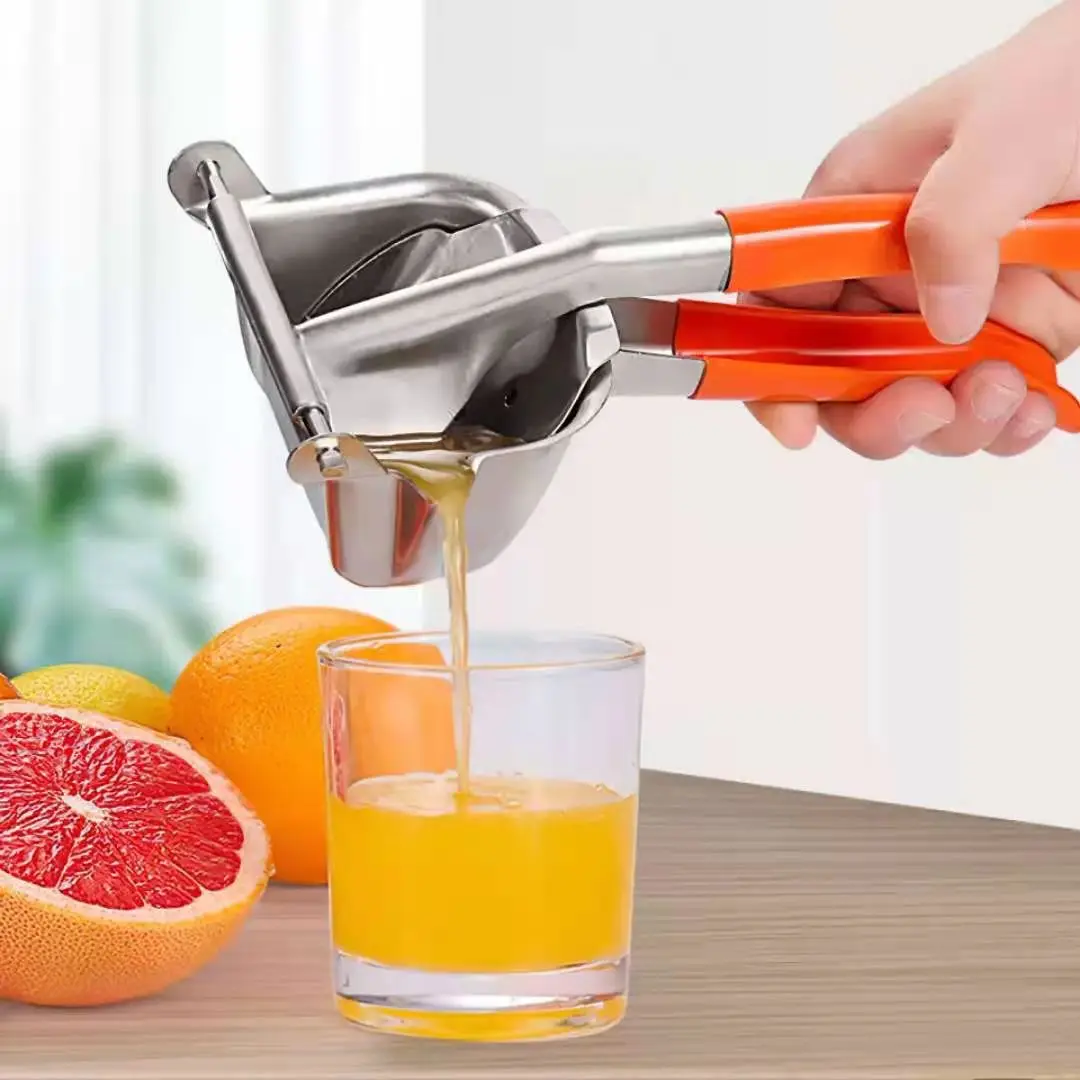 Comparing Manual and Electric Juicers
Comparing Manual and Electric Juicers
To determine if manual juicers are good, it’s helpful to compare them with electric juicers. Both types have their merits, and the best choice depends on your specific needs and preferences.
Efficiency and Speed
Electric juicers excel in terms of speed and efficiency. They can process larger quantities of produce quickly, making them ideal for those who juice frequently or in large batches. Manual juicers, on the other hand, require more time and effort, which might be a drawback for some users.
Versatility
Electric juicers often come with multiple settings and attachments, allowing them to handle a wider variety of fruits and vegetables, including leafy greens and hard produce. Manual juicers are generally more limited in their versatility, though masticating and press models can accommodate a reasonable range of ingredients.
Maintenance and Durability
Manual juicers have fewer moving parts, which can translate to lower maintenance requirements and increased durability over time. Electric juicers may require more upkeep, such as regular cleaning of electronic components and replacement of parts, which can add to the overall cost.
Cost Considerations
As mentioned earlier, manual juicers are typically more affordable upfront. While electric juicers offer greater efficiency and versatility, their higher price tag might not be justifiable for casual juicers or those on a tight budget.
Who Should Choose a Manual Hand Juicer?
Manual juicers are an excellent choice for specific user groups. Understanding who benefits most from manual juicers can help you decide if they are suitable for your needs.
Casual Juicers
For individuals who juice occasionally, a manual juicer provides a cost-effective and low-maintenance solution. The simple operation and easy cleanup make it a convenient option for sporadic use.
Budget-Conscious Consumers
If you’re looking to save money, manual juicers offer a great way to enjoy fresh juice without the higher cost of electric models. They are also a sensible choice for those who want to avoid ongoing energy expenses.
Small Households
In smaller households where juice consumption is minimal, a manual juicer’s capacity is usually sufficient. Its compact size also ensures it doesn’t take up much counter or storage space.
Health Enthusiasts Focused on Nutrient Retention
Manual juicers’ low-speed operation helps preserve more nutrients in the juice, making them an excellent choice for health-conscious individuals who prioritize the nutritional value of their beverages.
Travelers and Outdoor Enthusiasts
The portability of manual juicers makes them ideal for people who spend time outdoors or travel frequently. Their lack of reliance on electricity means you can enjoy fresh juice anywhere.
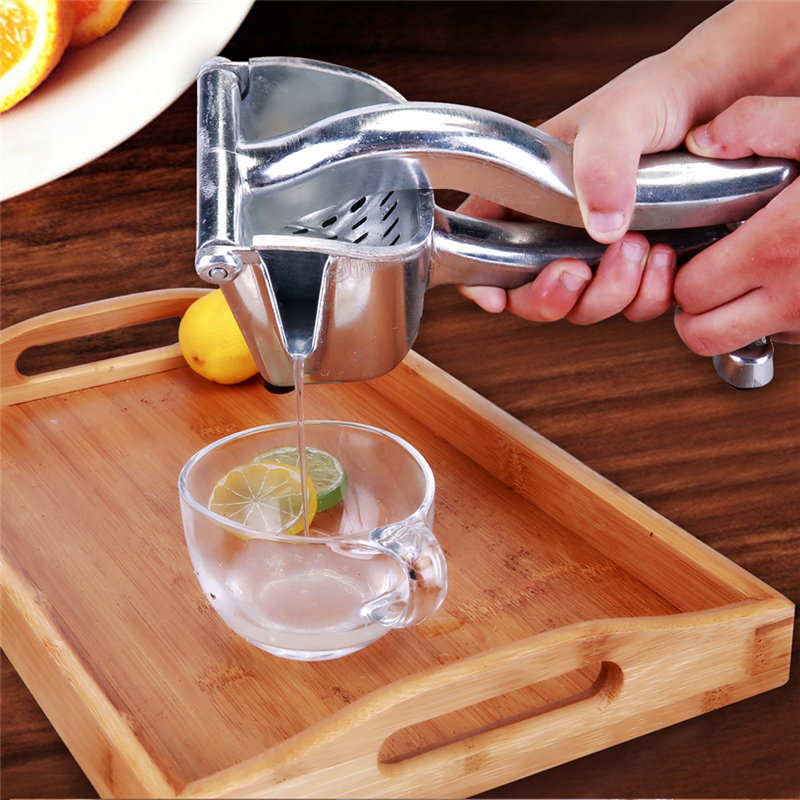 Limitations of Manual Hand Juicers
Limitations of Manual Hand Juicers
While manual juicers have their advantages, it’s important to acknowledge their limitations to make an informed decision.
Time and Effort
Manual juicing requires more physical effort and time compared to electric juicers. For those who juice daily or in large quantities, the labor-intensive process might become tiresome.
Limited Capacity
Manual juicers typically handle smaller quantities of produce at a time. If you need to juice large batches, multiple manual juicing sessions might be necessary, which can be inconvenient.
Less Efficient with Certain Fruits
Some fruits, particularly those with thick or tough skins, can be challenging to juice manually. Electric juicers often handle a wider variety of produce more effectively.
Shorter Lifespan for Some Models
While many manual juicers are durable, some lower-priced models might not withstand frequent use over time. It’s important to choose a high-quality manual juicer to ensure longevity.
Enhancing Your Juicing Experience with a Manual Hand Juicer
To maximize the benefits of a manual juicer, consider adopting practices that enhance your overall juicing experience.
Choose the Right Fruits and Vegetables
Selecting the appropriate produce can make manual juicing easier and more efficient. Soft fruits like oranges, lemons, and apples are ideal for manual juicers, while tougher fruits may require more effort.
Prep Your Produce Properly
Cutting fruits and vegetables into manageable sizes before juicing can reduce the effort needed and make the process smoother. Removing seeds and pits where necessary also prevents clogging and potential damage to your juicer.
Incorporate Juicing into Your Daily Routine
Establishing a regular juicing schedule helps integrate manual juicing into your lifestyle seamlessly. Whether it’s a morning ritual or an afternoon boost, consistent juicing ensures you reap the nutritional benefits regularly.
Experiment with Recipes
Diversifying your juice recipes keeps the process exciting and flavorful. Combine different fruits and vegetables to create unique blends that suit your taste preferences and nutritional needs.
Maintain Your Juicer
Regular maintenance, such as cleaning after each use and periodically inspecting for wear and tear, ensures your manual juicer remains in optimal condition. Proper care prolongs the lifespan of your juicer and maintains its efficiency.
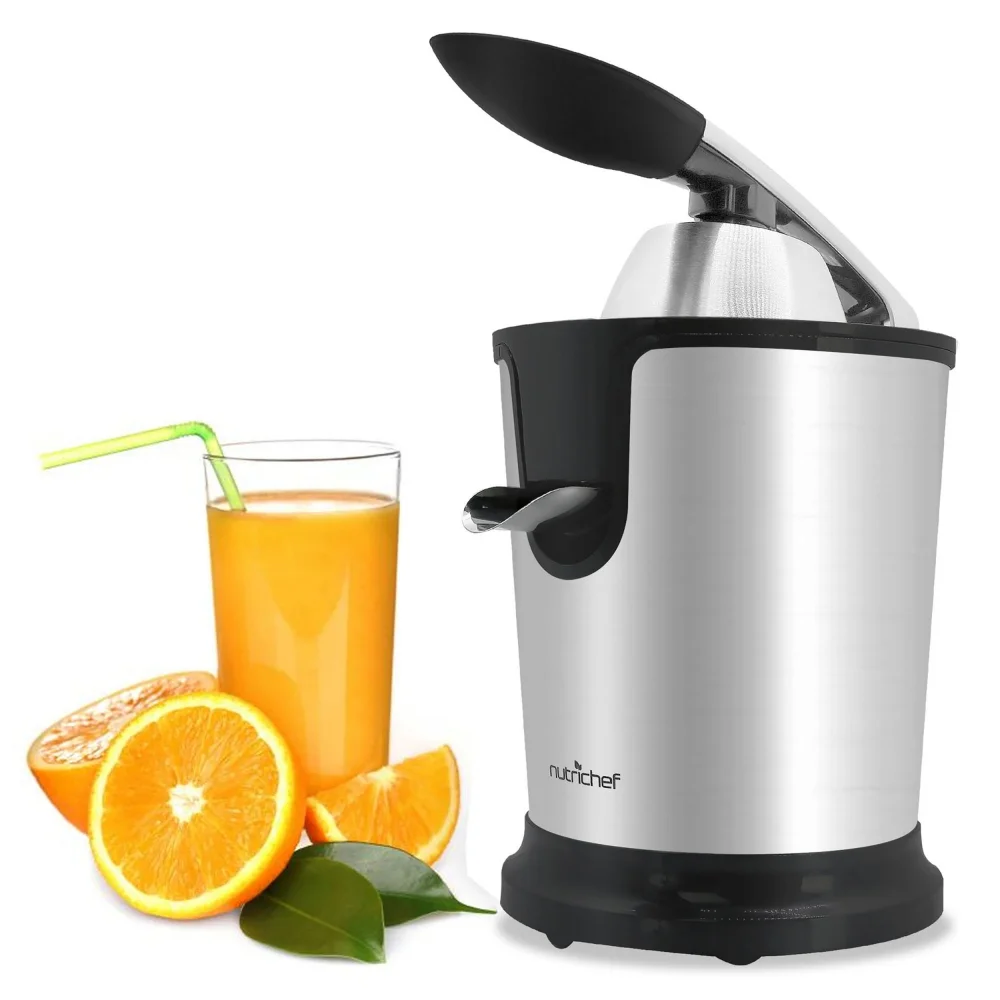 Sustainability and Environmental Impact
Sustainability and Environmental Impact
When evaluating if manual juicers are good, it’s also important to consider their environmental impact. Manual juicers are inherently more eco-friendly compared to electric models for several reasons.
Energy Efficiency
Manual juicers do not require electricity, which reduces their carbon footprint. By using human power instead, manual juicers offer a sustainable alternative to energy-consuming electric juicers.
Minimal Plastic Use
Many manual juicers are made from durable materials like stainless steel or glass, which are recyclable and less harmful to the environment compared to the plastic components often found in electric juicers.
Longevity
Manual juicers typically have fewer parts that can break or wear out, leading to a longer lifespan and less frequent replacement. This durability contributes to less waste over time.
Reduced Electronic Waste
Since manual juicers do not contain electronic parts, they do not contribute to the growing problem of electronic waste. This makes them a more responsible choice for environmentally conscious consumers.
Real User Experiences: Are Manual Hand Juicers Good?
To provide a balanced perspective, let’s explore real user experiences and testimonials regarding manual juicers.
Positive Experiences
Many users appreciate the simplicity and reliability of manual juicers. They find the upfront cost reasonable and enjoy the quiet operation, especially in shared living spaces. Health enthusiasts often praise manual juicers for preserving the nutrients in their juice, leading to a more satisfying and beneficial beverage.
Constructive Criticism
Some users highlight the effort required as a downside, noting that manual juicing can become tiresome with frequent use. Additionally, others mention that manual juicers may not handle hard or fibrous fruits as efficiently, sometimes resulting in lower juice yields compared to electric models.
Overall Satisfaction
Overall, user satisfaction with manual juicers is high among those who prioritize affordability, simplicity, and nutrient retention. While they may not match the speed and capacity of electric juicers, manual juicers effectively meet the needs of their target audience.
Making the Right Choice: Is a Manual Hand Juicer Good for You?
After considering the benefits, limitations, and user experiences, the final question remains: Are manual juicers good for your needs? The answer depends on several factors, including your juicing frequency, budget, and lifestyle preferences.
Assess Your Juicing Needs
Evaluate how often you plan to juice and the types of fruits and vegetables you prefer. If you juice occasionally and mainly focus on softer produce, a manual juicer can be an excellent choice. However, if you require high-volume juicing or work with a variety of produce, an electric juicer might better suit your needs.
Consider Your Budget
Manual juicers are generally more affordable than electric models, making them a great option for those on a budget. Additionally, the lack of electricity usage can lead to long-term savings, adding to their financial appeal.
Evaluate Your Space and Portability Needs
If you have limited kitchen space or need a juicer that’s easy to transport, manual juicers are ideal due to their compact size and lightweight nature. Electric juicers often require more storage space and are less portable.
Prioritize Health and Nutrient Retention
For individuals focused on maximizing the nutritional value of their juice, manual juicers offer a significant advantage through their low-speed, nutrient-preserving operation. This makes them a favorable option for health-conscious users.
Weigh the Effort vs. Convenience
Consider how much effort you’re willing to invest in the juicing process. Manual juicers require more hands-on participation, which might be a deterrent for those seeking quick and effortless solutions. If you’re willing to put in the effort for the benefits, a manual juicer is worth considering.
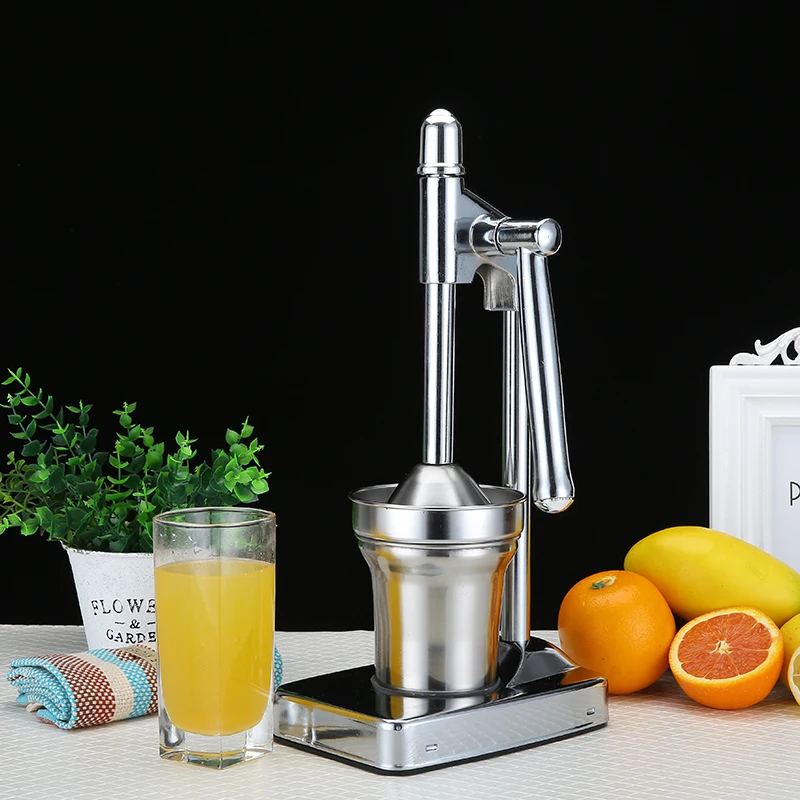 Conclusion
Conclusion
In conclusion, manual juicers offer a range of advantages that make them a valuable addition to many kitchens. They are cost-effective, portable, easy to use and clean, and environmentally friendly. While they may require more effort and time compared to electric juicers, their benefits in nutrient preservation and sustainability make them an excellent choice for many users.
Ultimately, Are manual juicers good depends on your personal needs and preferences. If you prioritize affordability, simplicity, and health benefits, a manual juicer can significantly enhance your juicing experience. By understanding the strengths and limitations of manual juicers, you can make an informed decision that aligns with your lifestyle and health goals.
Embrace the benefits of a manual juicer and enjoy fresh, nutritious juice anytime you desire. With the right approach and care, a manual juicer can become a cherished tool in your quest for a healthier life.